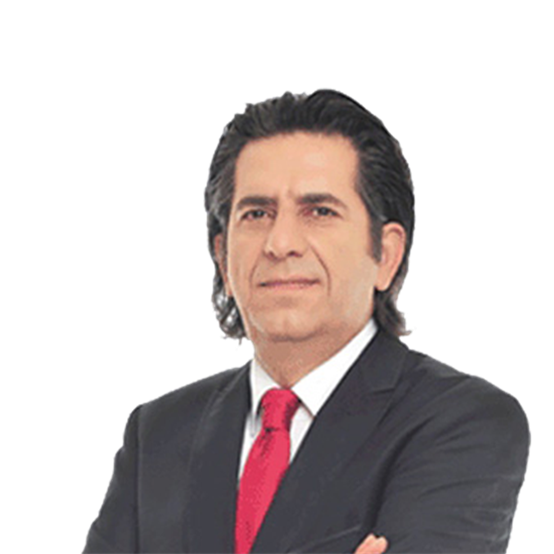About two years ago Morton Abramowitz was describing the Kurdish problem as “Turkey’s Achilles heel” in his article about the region.
At that time extremely bloody clashes were underway with the PKK.
All of a sudden new life was breathed into the reconciliation process as a result of a call by Öcalan that ended the hunger strikes and we reached the stage we are at today.
The events of Oct. 6-8 emerged as a diversionary road that presented the risk of dragging us back to the dark days of 2012.
We know that Abramowitz and his kind comment not on the basis of reality but on the basis of what suits their aims and purposes.
That is why apart from ascertaining the reality behind a deduction like “the Kurdish issue is Turkey’s Achilles Heel,” it is just as important to ask “Achilles Heel for whom, and who wants to see the Kurds as an Achilles Heel?”
Is our issue that we have known and become familiar with just a “domestic issue?”
Or does the stage on which these discussions are being carried out have other meanings as well?
Does not Syria, with the world’s largest natural gas reserves, dazzle the eyes for example?
Don’t the topics include ISIL sitting on top of a huge oil field in Mosul and its rendering the Iraq-Syria border meaningless. Don’t the topics include ISIL’s proximity to Kirkuk, which is of equal value and the possibility of major developments there in the near future?
Even more important than these reserves, could it not be that these areas being fought over at the moment are those that will provide transit routes for the oil and natural gas…
The issue at stake is one that greatly concerns Turkey since apart from other issues of strategic importance it also involves Turkey’s oil agreements with Arbil that continue to flow through the pipelines.
Is it possible to determine right now whether a horizontal corridor extending to the Mediterranean, south of our border in the near future will be an opportunity or source of competition to us?
In short, at the core of the issue is a clear oil and natural gas war and a conflict of influence based on that. This is not a new war but one that has been going on for hundreds of years.
The position adopted by Russia, Germany and Iran with regard to Syria, ISIL, Sunni and Kurdish groups; the silence of Israel and the United Kingdom; France’s suspicion about theses put forward by Ankara and the actions taken by the United States in relation to the PYD, all combine to create this situation and these are only the reflections that rise to the surface as a result of this conflict.
Which country in this complex region is it where the Kurds have integrated, become comfortable, and received rights and protection of those rights? Is it Iraq, Syria, or Iran?
Who do they share a common past with?
In which country have they joined hands alongside other ethnicities to build a future together?
In which country did they marry others, become neighbors, colleagues, companions and friends to this extent?
And in which country have they undertaken a venture to build a problem-free country under a national, reciprocal and joint will?
Those that adopt modern, western and “too many new” views, and ignore the answers to all the above questions in their comments, and believe they will get somewhere by inventing slogans should take another look at the map in my opinion.
In the region that Turkey is a part of, does the Republic of Turkey pose a problem for the Kurds or is it a friend they can cooperate with, and a nest they can seek shelter in?
Those that have their ears fixed on what U.S. spokespersons have to say should also pay heed to Recep Tayyip Erdoğan who during his trip to Latvia said “The United States committed an error.” It is not just Erdoğan talking; it is the president of the Republic of Turkey talking at the same time.
It didn’t take long for Arbil to realize that it couldn’t live without Ankara after it began cheering with glee when it was presented with a State following the occupation of Iraq in 2003.
This is a State that not only remembers the wars waged against the Safavids and the British but one that also remembers what happened in 1992 and 2003 and had to deal with their consequences.
I don’t know why those that make daily plans in that chaotic region south of the long border keep forgetting that just to the north of that border lies a major country that is well settled and deep rooted.
Even if everything proceeds like they wish it to, won’t this be the country that will be their neighbor, companion, or the country they will cooperate with or seek shelter in?
Hasn’t history proven this simple truth time and time again?
…
The tale says Achilles eventually died when a poisonous arrow struck his left heel in the Trojan War.
The Trojan War took place in Anatolia but the story is not ours.
Turks and Kurds are neither each other’s Achilles Heels nor poisonous arrows.
Since you don’t possess the wit to look at a map and since you cannot tell whether the United States or Turkey is closer… at least go to Çanakkale and take a look at the Trojan horse. And while you are there, visit the cemetery and look at the names and hometowns of those lying side by side…




















